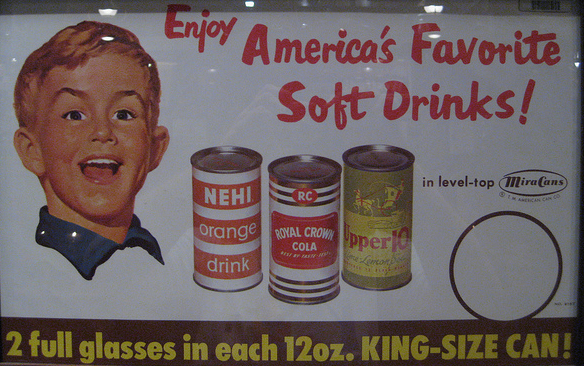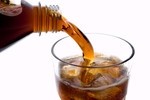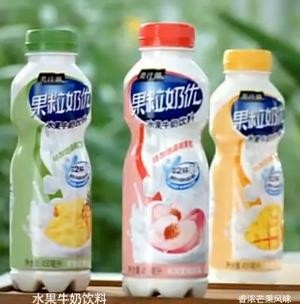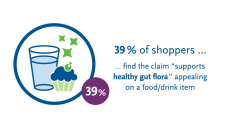End to soft drink ‘parity pricing’ could help ease obesity epidemic: expert

Nutrition policy specialist Professor Jack Winkler made him remarks in a commentary piece written for the British Journal of Nutrition (BJN), specifically discussing a paper by Ng et al..
Published in the same issue of the BJN, these researchers examined surveys of individual dietary intake data and household food expenditure in Great Britain between 1986 and 2009.
They estimated the potential for pricing policy to “promote more healthful beverage purchase patterns” and reduce consumption of sugar-sweetened bevereages (SSBs).
The team noted a fall in high-fat dairy product consumption and a trend towards fruit juices and reduced-fat milk amongst children, while amongst adults the same pattern was evident.
Crucially, the researchers calculated that a 10% increase in the price of (SSBs) could lead to a consumption decrease of 7.5ml per capita per day.
A similar 10% tax on high-fat milk was associated with a reduction in the same terms of 5ml per day, and an increased reduced fat milk purchase of 7ml per day.
“This analysis implies that taxation or other methods of shifting relative costs of these beverages could be a way to improve beverage choices in Great Britain,” the authors wrote in their abstract.
Taxing times for soft drinks?
But while he welcomed proposals to tax less healthy ingredients and foods – especially SSBs – as a positive development, Winkler warned that taxing such products was difficult.
At the heart of the matter lay the economic concept of ‘price elasticity of demand’, he noted, where economists define demand as ‘elastic’ if a given sales decline is proportionate to or greater than the price increase.
Since Ng et al.’s analysis showed that a 10% tax would only reduce purchases by 4-6%, this suggested that demand for soft drinks was “very unresponsive” or inelastic, he wrote.
“In plain English, 7.5ml is 0.4% of the most popular two-litre bottle, less than a sip. It would not even cut sugar intake by a gram, only 12.6kj (3kcal),” Winkler wrote.
Moreover, in the real world, consumers could save money by other means than cutting-back on purchases, Winkler observed. They might buy bigger bottles in cheaper shops and benefit from special offers, while brand loyalty was also an issue.
With carbonates accounting for more consumption than other soft drinks and fruit juices combined, Winkler wrote that Coca-Cola and Pepsi successfully commanded a price premium of 950% (presuming a price of £1.89 for two litres of Coke at its most expensive), above retailer Asda’s cheapest private label equivalent at only 18p.
Winkler said: “If consumers are willing to pay 950% extra for a brand they prefer, they are unlikely to be changed by a 10% tax.”
Those proposing such taxes also needed to consider the political context, Winkler wrote, giving the example of a 2007 trade dispute with Brazil, in the aftermath of which the EU cut the price of sugar 36%.
Fruit juice exemption
It would be unlikely that any British politician would support a tax on less healthy foods, due to the risk of unpopularity for negligible health gain, he added.
Furthermore, Winkler wrote, tax proponents targeting SSBs were tilting at ‘added sugar’ but exempting ‘unsweetened’ fruit juices, and should clarify whether taxes should also apply to juices high in sugar that had the same detrimental effects as added sugars.
He wrote: “After soft drinks, fruit juices are the second largest source of sugars in the UK diet, ahead of chocolate biscuits and cakes. Given the many unavailing efforts to raise Britain’s meager fruit intakes, it is perhaps understandable that the tax was designed for ‘sugar sweetened’ rather than ‘sugar containing’ beverages. But anyone serious about reducing sugar cannot evade the issue.”
Winkler said that, contrary to the ambivalent attitude that Ng et al., and bodies such as the UK Food Standards Agency (FSA) and the School Foods Trust, for instance, had towards sweeteners, for most British consumers “sweeteners are just a convenient means of cutting energy intake”.
Before aspartame hit the UK market in 1981, sugarfree drinks cornered only 4% of the UK market, but this had now risen to 37% of carbonates alone, Winkler noted, citing Zenith International research figures.
“Shifting consumers from sugared to sugarfree drinks cuts more sugar, more quickly, than trying to depress SSB sales. Any tax on added sugar would reinforce the trend, encouraging manufacturers to use more sweeteners, as in the 1990s," he wrote.
But if any added sugar tax was not applied to sweeteners, then it could be a “first, small step towards opening a price differential between sugared and sugarfree drinks,” Winkler suggested, where this price variation really could impact SSB consumption.
Enforced parity pricing
However, the major brands enforced parity pricing between sugared and sugarfree variants of drinks, although the latter were much cheaper to produce, he added, with producers effectively charging a ‘health premium’ for such products that consumers believed were beneficial in terms of weight control.
But since prices for aceK and aspartame were much lower than sugar, Winkler told BeverageDaily.com, companies could cut the price of sugarfree very substantially.
He said: “That would create a differential that consumers would recognise. And respond to, by changing their purchases, while still remaining within the soft drinks sector.”
Winkler told this publication he was trying to raise the stakes to encourage industry to help tackle an obesity epidemic.
He said: “In sum, yes creating a price differential between sugared and sugar-free is the goal. But a tax-and-exemption strategy is an ineffective way to achieve it. Much quicker and more effective is a margin adjustment to create a ‘health incentive’.”
Title: ‘Invited commentary: Why soft drinks taxes will not work’
Author: J.Winkler, Nutrition Policy Unit, London, UK
Source: British Journal of Nutrition 2011, doi:10.1017/S0007114511006477























